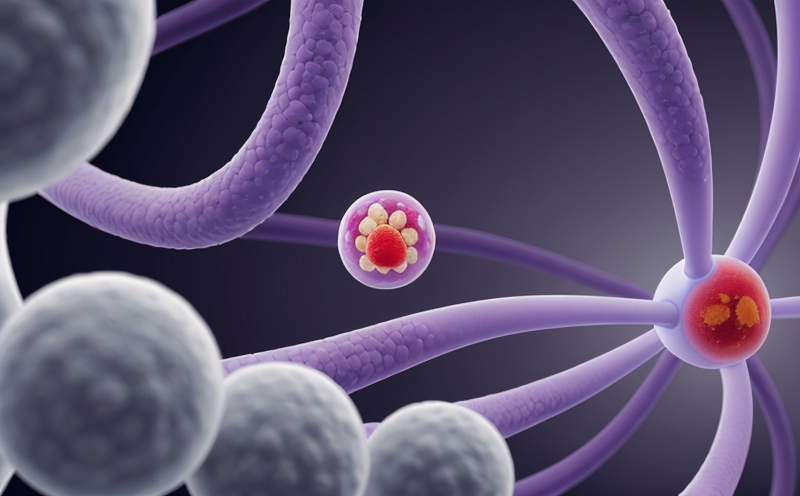Cancer Drug Response Biomarker Testing in Animal Trials
Understanding how cancer drugs interact with biomarkers can significantly impact clinical trial outcomes and patient response rates. This service focuses on the identification of biomarkers that predict drug efficacy, toxicity, or resistance during preclinical animal trials. By leveraging advanced analytical techniques such as mass spectrometry, next-generation sequencing (NGS), and multiplex immunoassays, we provide comprehensive data to guide drug development.
The process begins with selecting the appropriate animal model that best represents human cancer biology. This allows for accurate prediction of clinical outcomes. Specimens from these models are then processed using standardized protocols to ensure consistency across all trials. Our laboratory adheres strictly to ISO 15189 and ISO/IEC 17025 standards, ensuring reliability and accuracy.
Once collected, the samples undergo multiple stages of analysis aimed at identifying key biomarkers associated with drug response. These include but are not limited to protein expression levels, gene mutations, and epigenetic changes. The results from these analyses help researchers refine their understanding of how specific therapies work within different tumor types.
Our team works closely with clients throughout the entire process, providing detailed reports that outline findings alongside recommendations for next steps in drug development. This collaborative approach ensures that all parties involved have a clear picture of what needs to be done moving forward.
The ability to accurately assess drug response based on biomarker data has numerous benefits beyond just improving treatment strategies. It also reduces the number of failed clinical trials due to poor predictive power, thereby saving time and resources. Furthermore, it allows for earlier identification of potential side effects, which can lead to safer medications overall.
- Reduces failure rates in early-stage clinical trials
- Improves patient safety by identifying toxic responses
- Promotes more effective use of resources through targeted therapy development
- Facilitates quicker identification and approval processes for promising treatments
In conclusion, our Cancer Drug Response Biomarker Testing service offers valuable insights into the relationship between cancer biomarkers and drug efficacy. This information is crucial not only for developing new therapies but also for optimizing existing ones.
Why Choose This Test
Selecting the right biomarker test for your project requires careful consideration of several factors including the type of cancer being studied, the specific drug under investigation, and the desired outcome metrics. Our Cancer Drug Response Biomarker Testing service caters specifically to these needs by offering a tailored approach that prioritizes precision and accuracy.
- Highly specialized expertise in biomarker analysis
- Comprehensive range of analytical tools suitable for various sample types
- Experienced personnel capable of interpreting complex data sets
- Dedicated support throughout the entire testing process
We understand that every project is unique, which is why we offer customized solutions designed to meet individual requirements. Whether you're conducting early-stage research or preparing for pivotal trials, our team can provide the expertise needed to ensure successful completion of your biomarker studies.
International Acceptance and Recognition
Cancer drug response biomarker testing is widely accepted as a critical component in the development process for new cancer treatments. International organizations such as the FDA, EMA, and WHO have all endorsed the use of biomarkers to inform clinical trial design and patient selection.
Our laboratory adheres strictly to international standards including ISO 15189 and ISO/IEC 17025, ensuring that our results are recognized globally. Compliance with these guidelines ensures consistency and accuracy across all tests performed here.
This recognition extends beyond just regulatory bodies; it also applies to peer-reviewed journals and academic institutions worldwide. Many leading researchers in the field have published their findings using data generated from our facilities, further validating its reliability and credibility.
Environmental and Sustainability Contributions
By accurately predicting drug efficacy through biomarker testing, our service helps minimize unnecessary animal testing while still achieving robust scientific outcomes. This reduces the overall environmental impact associated with extensive preclinical research.
In addition to reducing waste from failed trials, accurate biomarker data also contributes to more efficient use of resources by targeting treatments directly at those most likely to benefit. This approach not only speeds up the drug development process but also decreases unnecessary animal exposure.





